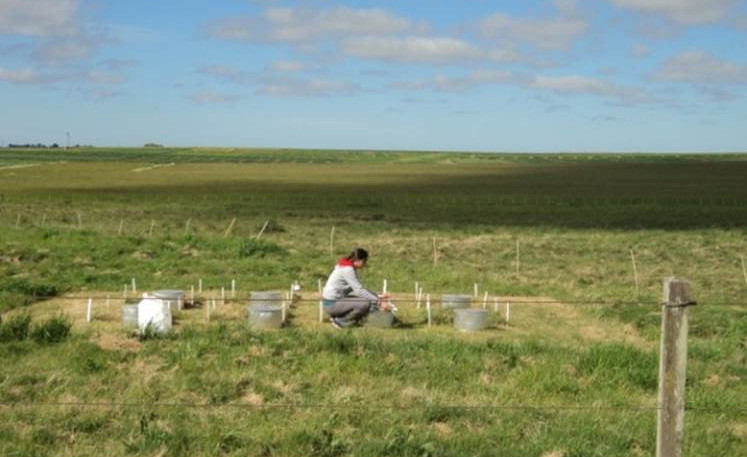‘Classroom on wheels’ explores NZ value chains
23 November 2022 | News
Lincoln University teamed up with Rural Leaders recently to deliver a seven-day bus tour of Aotearoa New Zealand’s four major agricultural sectors: dairy, red meat, kiwifruit and apples.
The Value Chain Innovation Programme, which focused on North Island value chains, attracted 22 participants, including senior growers, farmers, consultants, industry professionals and government employees.
It was aimed at those with a strong interest in the food and fibre sectors and a passion for developing their leadership skills. Interested candidates were asked to complete a formal application, including their academic and/or industry merit, area of interest, CV and 1000 words on their motivations and learning goals.
Programme Facilitator Professor Hamish Gow said the tour involved exploring the entire value chain from one end to the other, using comparative analysis to understand how the firms in the four sectors created, captured and distributed value.
"The programme offered a platform for people to rapidly evaluate whether the firms were effective in capturing value, how they captured and distributed it, and what the implications were for industry."
The participants explored three separate value chain discipline alignment models: Operational Excellence, an efficiency value model used by Fonterra; Product Leadership, used by Zespri; and Customer Intimacy, used by First Light Foods and Rockit Apples.
"In Operational Excellence, you create value from volume, efficiency and scale economies," Professor Gow said.
"In Product Leadership, you invest a lot of time and money into research and development, innovation and brand to create a technically superior branded product."
He said this was usually a long game, with several students surprised to discover there could be a 15-to-20-year lead to commercialise a new version of a kiwifruit or apple.
"In Customer Intimacy, firms focus on gaining deep insights and understanding of their customers and addressing their concerns."
Professor Gow added that exceptional firms and value chains excelled in one discipline alignment and were also above average in the other two disciplines.
The bus became a rolling classroom for the week-long immersion, with students discussing, debating and unpacking insights and issues between visits. Onboard, critical reflection resulted in the group agreeing on several key issues.
Professor Gow said one of these related to the fact that New Zealand was still transitioning from "volume to value".
"There are a lot of players who are still volume based, but that’s okay. They run a value chain model that creates value out of volume, whereas others are moving to value-add.
"The big example here was non-IP apples at $2 per kilogram in the supermarket, versus Rockit Apple NZ, which gets $2.99 for a 76-gram container, as sold at some service stations in Napier. This translates to about $39 per kilogram."
Several participants hailed the programme as a huge success.
Kylie Leonard, a 2023 Nuffield scholar, said the carefully selected combination of participants resulted in varying opinions coming together in positive debate, to solve problems constructively.
"This was helped in no small part by the facilitators, who laid out a framework at the start of the programme, to help us really dig into what we were seeing."
Professor Gow said the participants realised within the first day that the bus was "a safe haven where we could engage in challenging discussions and debates".
"Everyone came out fizzing. It was refreshing, exhilarating and changed mindsets. Everyone wanted to replicate the experience and insights on a larger scale. How could we scale it to tackle the large issues confronting the New Zealand primary industries?"
Plans have been discussed to facilitate a South Island version of the programme in 2023 and an international trip could be on the horizon. The Value Chain Innovation Programme attracted a range of participants, including senior growers, farmers, consultants, industry professionals and government employees.
The Value Chain Innovation Programme attracted a range of participants, including senior growers, farmers, consultants, industry professionals and government employees.


